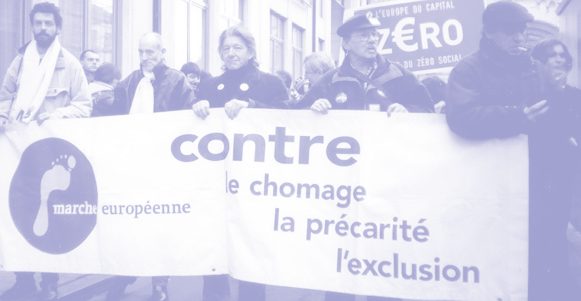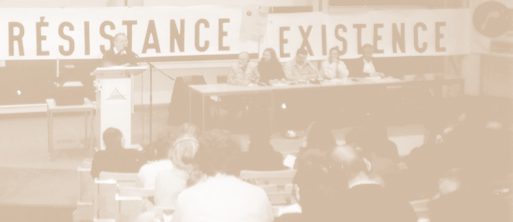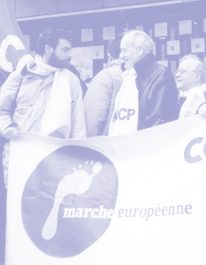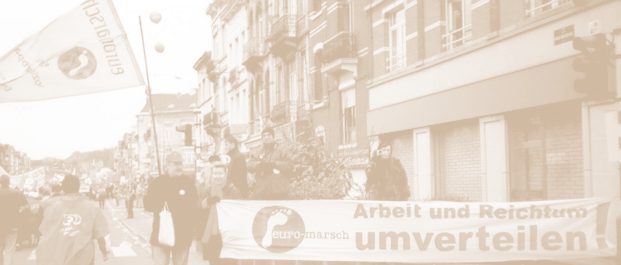

 |
 |
 |
 |
 | ||
European Marches
|
||||||||||||||
| ||||||||||||||
2. Poverty in Europe |
||||||||||||||
|
Jean-Guy Dufour (Sources Eurostat, community panel of households) The European official definition of poverty is as follows: are considered as poor people who live with an income 60% lower than the median income ; half of the population live under this level of income. According to this definition, Europe could iclude on average 17% poor people. The situation in the different countries is one again quite scattered around this average. Portugal has a more than 20% poverty rate, the rate is a little below 20% in the UK, 16% in France or in Germany, 11% to 12% in Denmark or in the Netherlands. We can see that there is very little correspondence between these situations and official rates mentioned below. This results of course from the remark we have already made about these figures. Poverty finds its source in total unemployment but also in the thousand different forms it takes, in other words, precarious work which is not taken into account in official figures. Thus, the relatively good figures on unemployment in the United Kingdom hide a situation actually very bad regarding the number of poor. In addition, social protection systems are very different from one country to another (see further); so is family solidarity. The realities people live are thus very different. Nonetheless, the fact remains that the figures mentioned above show that poverty is not a marginal reality in Western Europe. As for the East, the speeches we heard throughout the conference have been eloquent... We also have to notice that poverty in Europe is related to an evolution of wealth redistribution produced with capital and work that has been very unfavourable to workers for 25 years. In France for instance, the proportion allocated to workers jumped from 67% to 57% from 1981 to 1997 and then stagnated. That is worth 280 € a month less for the working population (worker or unemployed) if we compare the situation with what it would be with 1981's distribution!!! We can be puzzled by the official and unanimous way European states deal with some issues such as pension, healthcare or unemployment funds. |
Annexes |
|||||||||||||
|
<< Unemployment evolution in Europe since 1997 Resources guarantees in the different European countries >> Unemployment benefits in the different European countries >> 8. For a democratic Europe, of citizenship, social rights, equality and peace>> 
02/08/04
|
||||||||||||||